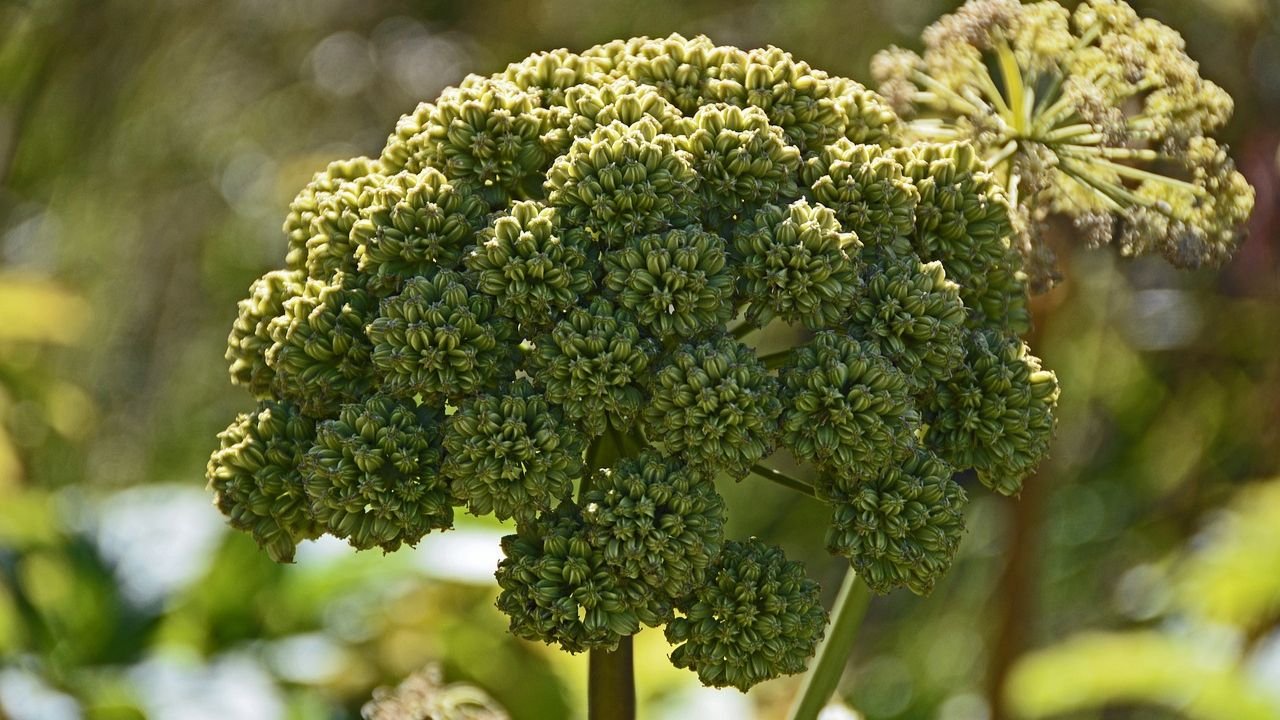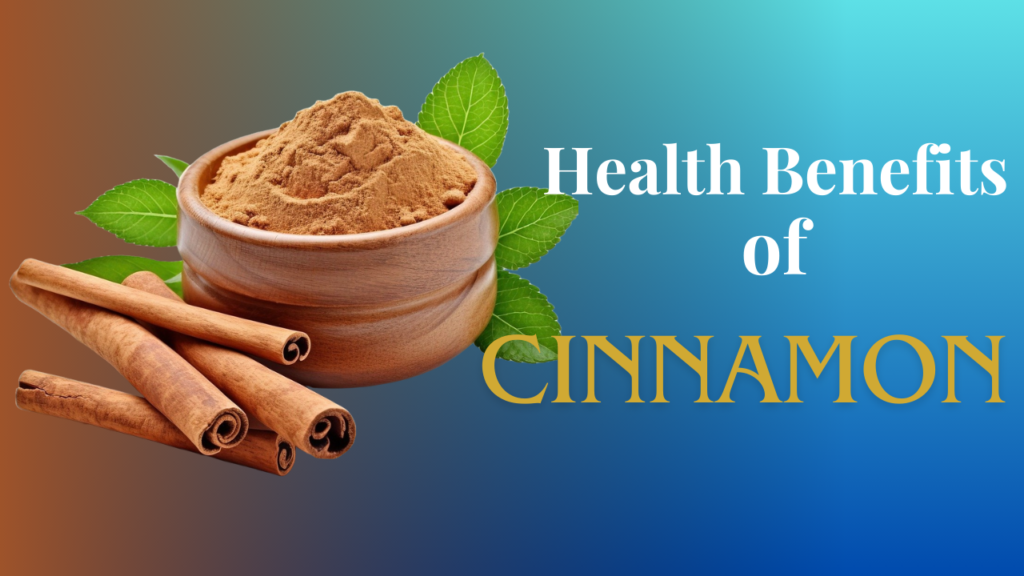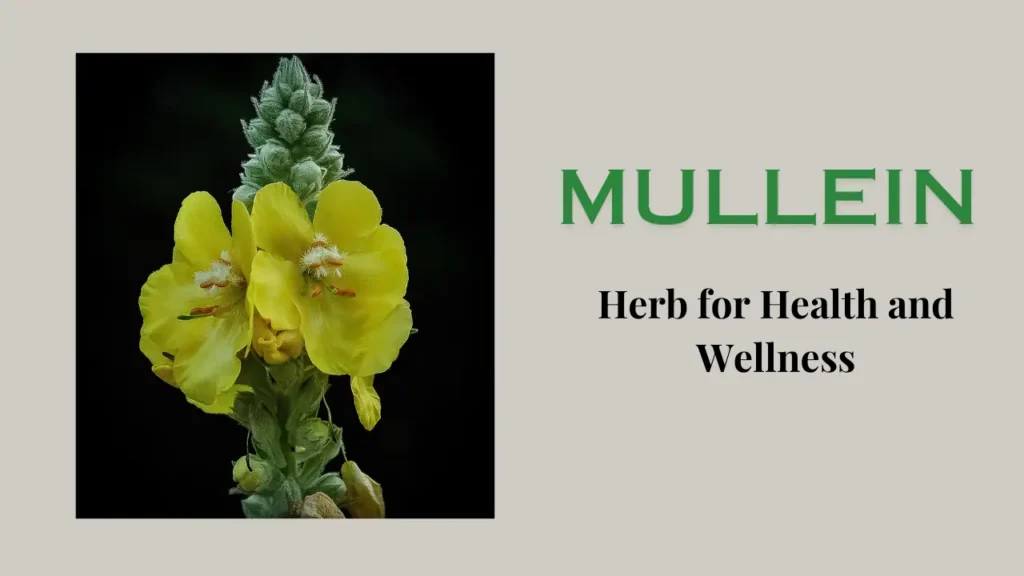Angelica is scientifically known as Angelica archangelica. It is a revered herb in the world of traditional medicine, known for its health benefits and therapeutic properties. In this article, we will learn about it in detail.

Scientific Name
Angelica archangelica
Synonyms
Archangelica officinalis, Angelica officinalis
Habit and Natural Habitat
Angelica is a biennial or perennial herb. Whose height is about 2 meters. It has large, hollow stems and clusters of umbrella-like white or greenish-white flowers.
It is native to temperate and subtropical regions of Europe, Asia, and North America. It requires moist and nutrient-rich soil to grow. It is usually found in grasslands, forest edges, and river banks.
Other Common names
Garden Angelica, Wild Celery
Chemical Composition
It is rich in bioactive compounds, including:
- Coumarins: such as umbelliferone and osthol
- Essential oils: mainly contain terpenes such as limonene and pinene
- Flavonoids: Contains quercetin and rutin
- Phenolic acids: such as ferulic acid and caffeic acid
Parts Used
Its roots, stem, leaves, and seeds are all used for their medicinal properties. However, the most commonly used parts are the roots and stems, which are harvested in the second year of growth.
Properties of Angelica
Ayurvedic Properties
In Ayurveda, it is classified as:
- Rasa (Taste): Bitter, Pungent
- Guna (Quality): Light, Dry
- Virya (Potency): Warm
- Vipaka (Post-digestive effect): Pungent
- Doshas: Calms the imbalance of Vata and Kapha
Therapeutic properties
Angelica has a wide range of therapeutic properties, including:
- Anti-inflammatory: Reduces inflammation and is beneficial in conditions like arthritis and rheumatism.
- Antispasmodic: Relieves muscle spasms, making it beneficial for digestive and menstrual disorders.
- Carminative: Helps expel gas from the digestive system and provides relief from problems like bloating and flatulence.
- Diuretic: Promotes the production and elimination of urine and aids kidney function.
- Expectorant: It helps to loosen and expel mucus from the respiratory tract, providing relief from cough, cold, and respiratory infections.
Health Benefits of Angelica
Consumption of Angelica provides many health benefits, some of which are as follows:
- Enhances digestive health: Angelica increases the absorption of nutrients by stimulating the production of digestive juices, thereby improving overall digestion.
- Support the immune system: They are rich in antioxidants and immune-boosting compounds that help strengthen the immune system. It increases immunity against infection and speeds up the healing process.
- Promotes heart health: It helps control cholesterol levels, improve blood circulation, and reduce the risk of heart diseases like high blood pressure.
- Relieves stress: Angelica has adaptogenic properties. They help the body adapt to stress, reduce anxiety, and promote a sense of peace and well-being.
- Helps with menstrual disorders: Angelica herb is traditionally used to regulate the menstrual cycle and reduce menstrual disorders. Its antispasmodic properties help relieve muscle cramps associated with menstrual pain.
- Reduces inflammation and provides relief from pain: It contains compounds with anti-inflammatory properties, which help it reduce inflammation. Its analgesic properties help improve mobility by relieving pain, swelling, and stiffness.
Uses of Angelica
You can include Angelica in your daily routine in various forms like:
- In the form of tea: To make this soothing and aromatic tea, put its dry roots or leaves in hot water filter it, and consume it.
- As a tincture: A tincture can be prepared by adding angelica roots to alcohol. It can be consumed orally to ease digestive problems, respiratory conditions, and menstrual cramps.
- Topical Application: Angelica essential oil or infused oil can be applied topically to treat skin conditions such as eczema, psoriasis, and acne, as well as relieve muscle and joint pain.
- Culinary Uses: Its stems and leaves can be used as additional flavoring agents in culinary dishes, sweets, and beverages.
Precautionary Measures for Angelica
It is necessary to be careful while using any herb because sometimes it can cause harm instead of benefit. Some of its precautions are as follows:
- Pregnancy and breast-feeding: Pregnant and lactating women should avoid consuming it as it may stimulate uterine contractions and affect hormonal balance.
- Attention on Allergic Reactions: Individuals allergic to the Apiaceae family (such as celery, carrots, and parsley) should avoid consumption to prevent allergic reactions.
- Drug Interactions: It may interact with certain medications, including blood thinners, antihypertensives, and diabetes medications. Be sure to consult a doctor before using it.
Conclusion
In conclusion, angelica is an herb that offers many benefits. While using it, keep in mind that if you are taking medicine for any other disease, then definitely consult a doctor before using it. When used properly, it can enrich your life and give you a healthy, happy life.
Remember, before starting any new wellness regimen, it’s always best to consult with a healthcare professional to ensure it is suitable for your specific needs and circumstances.








